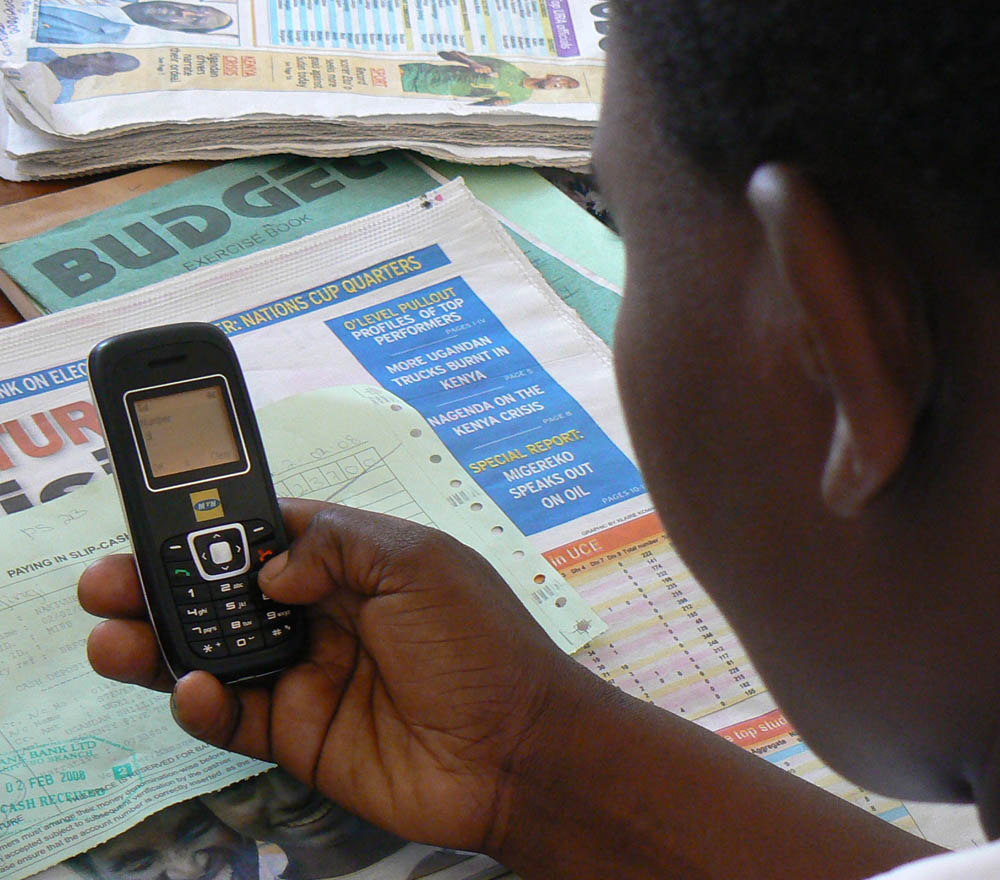
Remote data collection in Papua New Guinea: an aid to policy deliberations
By Amanda H A Watson
7 July 2015
I often hear people say in Papua New Guinea (PNG) that it’s difficult to get accurate data. This comment is made in relation to all kinds of data: on banking, health services, health statistics, school enrolments, farmer activities, road quality, infrastructure expenditure and many more topics. It’s difficult to collect data due to rugged terrain, poor infrastructure and weak, costly transportation systems. The data that is available may have taken months to reach the relevant central government agency, may be incomplete or may be questionable in some respect.
Without accurate, reliable, timely data, it can be very tricky, therefore, for policy-makers to make decisions and plan activities. How can the best decisions be reached, without an evidence base?
Given the expansion of mobile phone network coverage and mobile phone use within PNG since competition was introduced to the sector in 2007, this creates potential for the use of technology to collect data remotely. There are two main methods that have been trialled and could be used to good effect in the PNG context: phone interviews and SMS data collection.
Phone interviews provide a number of benefits, versus the expensive, time-consuming, labour-intensive process of sending out field teams to conduct face-to-face interviews around the country. As has been demonstrated in a project in PNG (see paper by Kaski, Mursau and Maybanks), the telephone interview method can generate useful data from all of the provinces of the country in a relatively short space of time (just a couple of months, in this case). As has been found in other developing nations, there can be challenges with getting usable, working phone numbers and also with sampling (for example a possible urban bias, or a bias against people whose phone batteries may not have been re-charged due to financial constraints). Nonetheless, phone interviews can be an effective method of quickly gathering certain types of data.
SMS data collection has been trialled in PNG with two law and justice sector agencies (the trial was conducted by the Economic and Public Sector Program and funded by Australia). What the project showed is that SMS (short message service or mobile phone text messaging) can be a convenient, user-friendly way for people in disparate geographical locations to report data. Most district court clerks involved in the trial were happy to use the system, which involved answering a series of questions via SMS, rather than having to rely on fax machines or the postal system. An article on the project was recently published in the Commonwealth Governance Handbook (from page 34).
Forms installed on mobile phone handsets have provided another means for two PNG government agencies (National Department of Health and National Agriculture Quarantine and Inspection Authority) to collect data from field officers based across the nation. In both cases, the officers complete user-friendly fields on their phones, such as tick-boxes and drop-down menus, but the resulting data summary is sent via SMS. This system has the advantage of not requiring mobile internet, although a drawback is that if phones are lost, stolen or damaged, new phones with pre-installed forms need to be sent to the officers concerned.
So when people say to me that it’s difficult to get accurate, timely data in PNG, I find I’m frequently talking to them about the mobile phone-based data collection methods outlined here. Obviously these methods are not suitable for sensitive information – if you want to talk to someone about a traumatic experience they’ve been through, or if you want to discuss sensitive political issues such as the plight of West Papuans living in PNG, then it’s unlikely that remote data collection would be suitable for your needs.
But government agencies and non-government organisations often would like to have quick, regular updates on key pieces of information, such as stock supply levels or enrolment figures. So it seems to me that the methods discussed here could be of use, particularly when coupled with field visits, which would provide more in-depth analysis and serve other beneficial means as well.
I talked this week with managers of an international, non-government organisation which is running valuable programs in a number of rural areas across PNG. The ideas we discussed have coalesced in my mind in this way: perhaps they might do field visits every four months, say, to collect detailed information, take photos and build rapport with project participants. And in addition they could enhance their monitoring processes through conduct of weekly, fortnightly, or monthly remote data collection exercises, which would gather numerical data that requires regular updating. By synthesising the detailed data gathered through the two means (field visits and remote data collection), the organisation would have a much better understanding of the situation at each project site and the performance of its programs.
While some forms of information are best gathered through face-to-face discussions, visits to villages and field site inspections, other pieces of information can be collected remotely via phone interviews or SMS data collection. In the PNG context, such data collection efforts could speedily provide decision-makers with up-to-date information. Remote data collection could also prove to be much cheaper than other methods, most of which involve travel across the country.
Dr Amanda H A Watson is Mobile Communication Research Consultant with the PNG Economic and Public Sector Program. She is also a Visiting Fellow at The Australian National University within the School of International, Political and Strategic Studies. The views expressed in this post are the author’s own.
About the author/s
Amanda H A Watson
Amanda H A Watson is a researcher with the Department of Pacific Affairs, Australian National University. She taught at the University of Papua New Guinea’s School of Business and Public Policy under the ANU-UPNG Partnership. Dr Watson has also taught at Divine Word University, Macquarie University, Queensland University of Technology and TAFE NSW.
